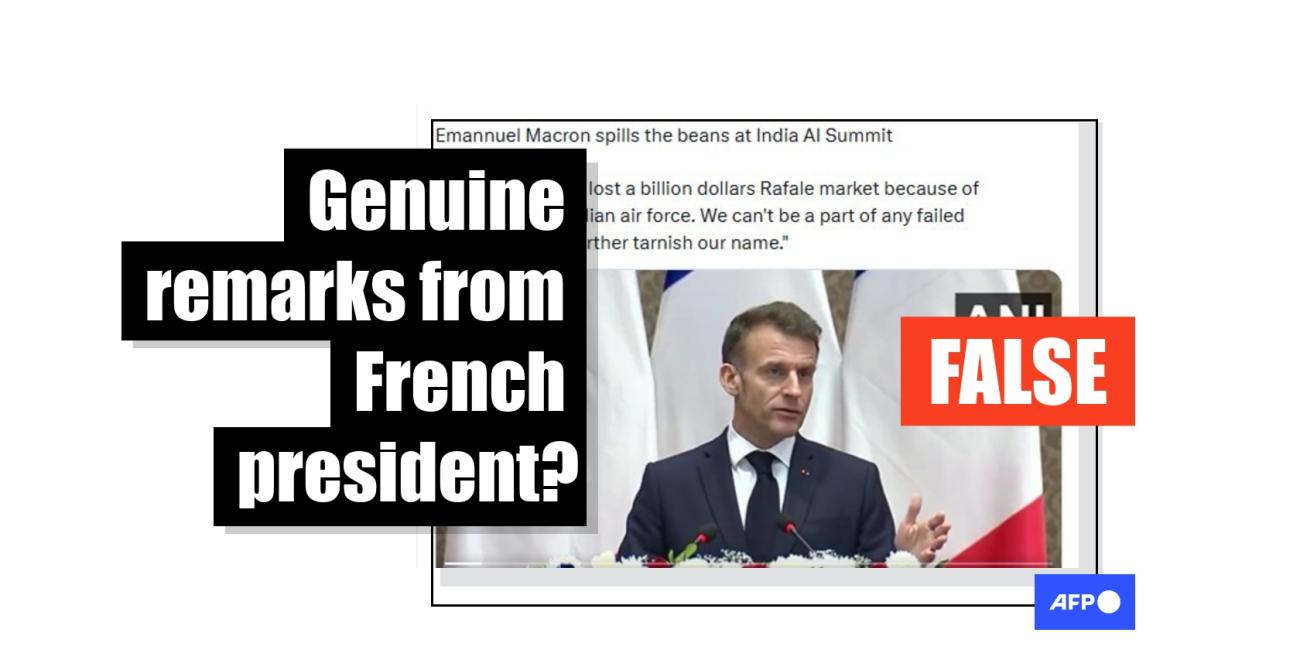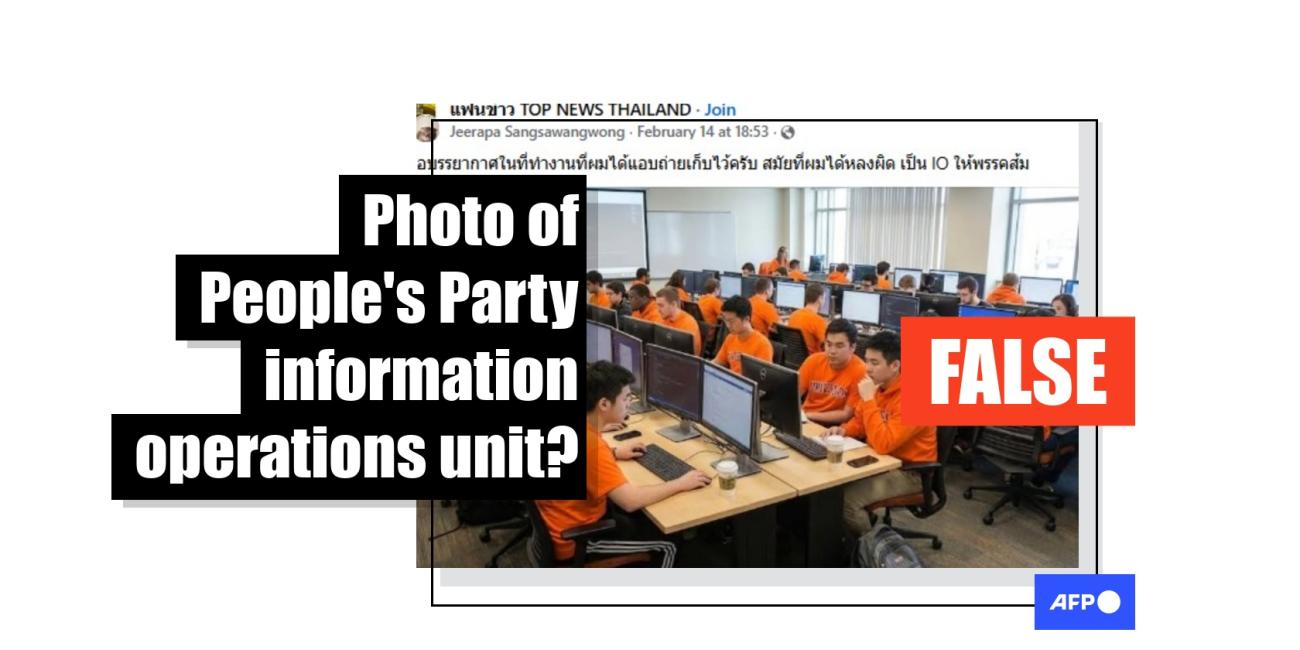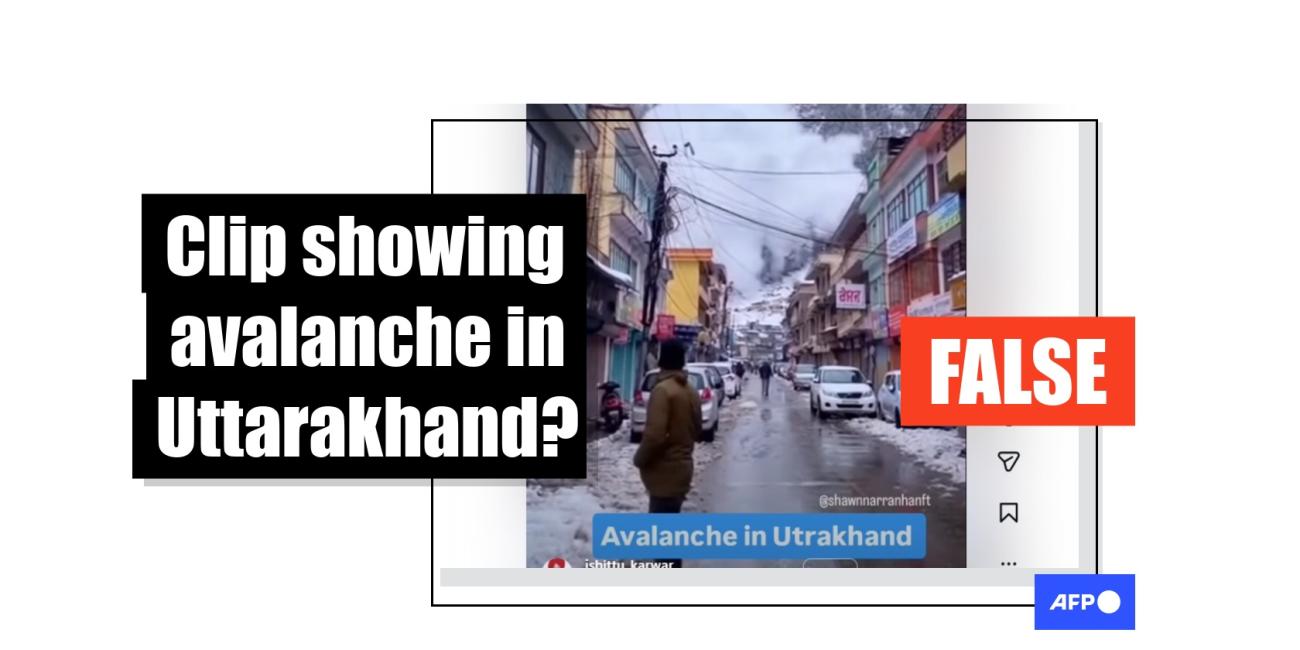
AI-generated video of Zambian president misleads about 2026 election plans
- This article is more than two years old.
- Published on October 26, 2023 at 09:05
- Updated on April 26, 2024 at 14:39
- 5 min read
- By Tendai DUBE, AFP South Africa
“Zambian President, Hakainde Hichilema, who was voted into office in 2021, announcing his decision not to seek re-election in 2026,” reads a post published on X (formerly Twitter) on October 10, 2023.
“Extremely remarkable considering the destructive penchant of African Presidents to cling on to power purposely to loot the public purse,” it adds.
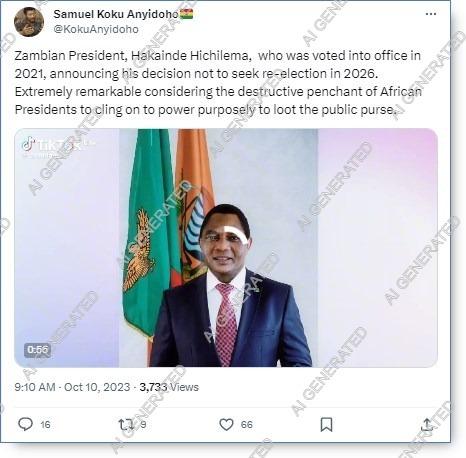
The 55-second video shows Hichilema speaking in front of the Zambian flag.
The video is slightly blurry and the colours appear to be filtered. Hichilema’s body remains immobile throughout; only his mouth moves.
“It is with the utmost sincerity and a profound sense of duty to our great nation that I announce my decision to not seek re-election in the upcoming general elections of 2026. I believe this decision is in the best interest of our country and its future,” Hichilema purportedly says.
AI-generated video
The video circulating on social media includes a watermark reading “@zambian_ai”. A keyword search led to a TikTok account that published the video in a post on September 22, 2023.
“Hakainde Hichilema Declares his Not running for 2026 elections (sic),” reads the caption.
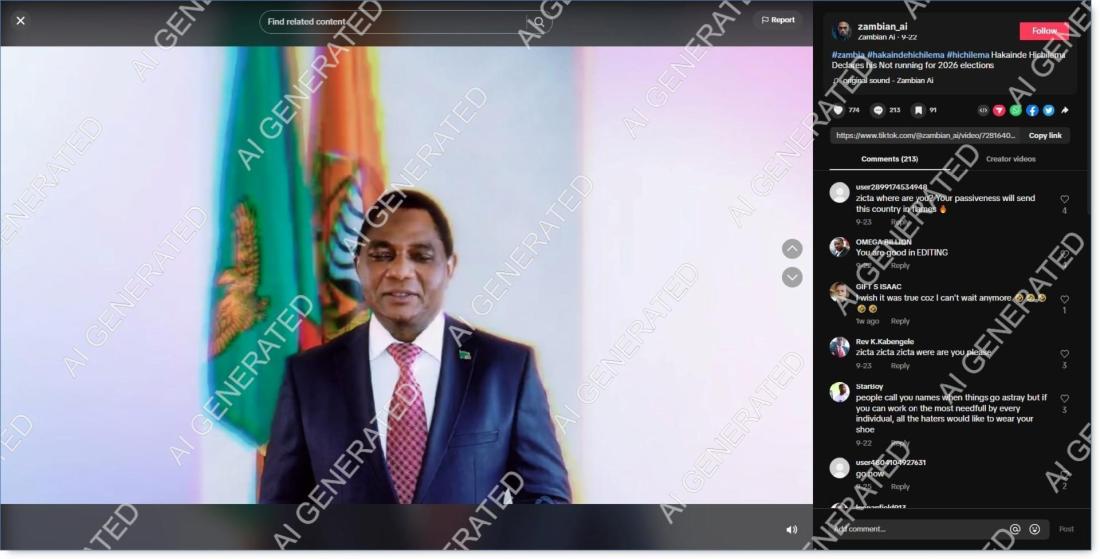
The TikTok account features other AI-generated videos, including one published days after Hichilema’s, showing Lungu purportedly declaring his return to “active politics in the 2026 elections”.
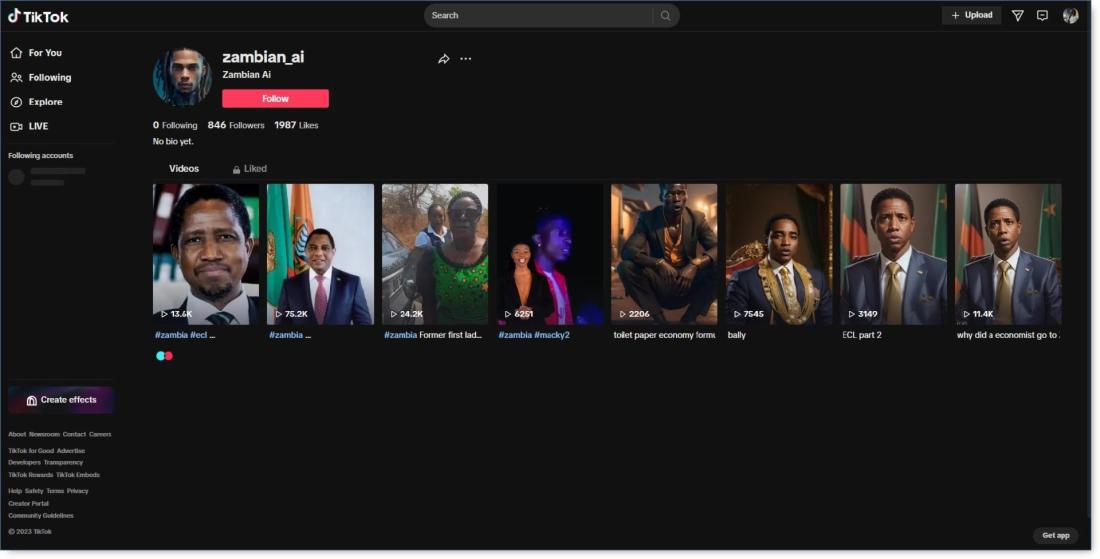
“Throughout the video, the entire upper body and neck are perfectly still, which is a typical artefact of this type of deepfake video in which only the head is generated by the AI,” said Hany Farid, a professor at the University of California, Berkeley and expert in digital forensics, misinformation and image analysis.
Farid added: “There are many individual frames in which the teeth are misformed, which is a typical artefact of this type of deepfake video in which the mouth and teeth are synthesised to be consistent with an audio track.”
The Atlantic Council's Digital Forensic Research Lab agreed, saying the video is “definitely AI-generated”.
“Although the audio syncs well with the lip movements, the movement of the rest of the image is what gives it away,” said Jean le Roux, research associate at DFRLab Sub-Saharan Africa.
“This is most likely a still image onto which the motion of the head and face was translated – a reverse image search of a thumbnail of the video should identify the original picture this was based off,” added le Roux.
AFP Fact Check performed a reverse image search and found the original image on Hichilema’s official X account. In the photograph, he is wearing the same tie and navy blazer, the flags in the background fall identically and the folds on the left arm of his blazer are identical (archived here).
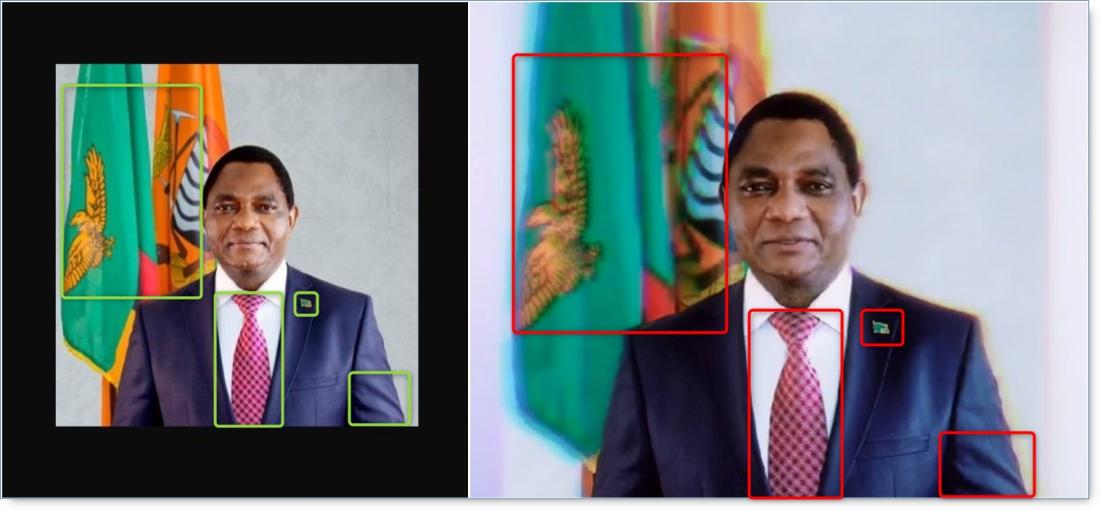
Matthew Stamm, an associate professor of electrical and computer engineering at Drexel University, specialising in the detection of falsified images and videos, and fellow expert Tai Nguyen analysed the video using algorithms and software called VideoFACT built under a research project (archived here).
“Traces are always introduced when an image or video is captured by a camera, or when it is created by an AI system,” said Stamm. “Similarly, new forensic traces are introduced into an image or video when editing software or AI systems are used to modify them.”
In this case, Stamm said the software identifies the video as a deepfake and highlights the falsified regions in Hichilema's face.
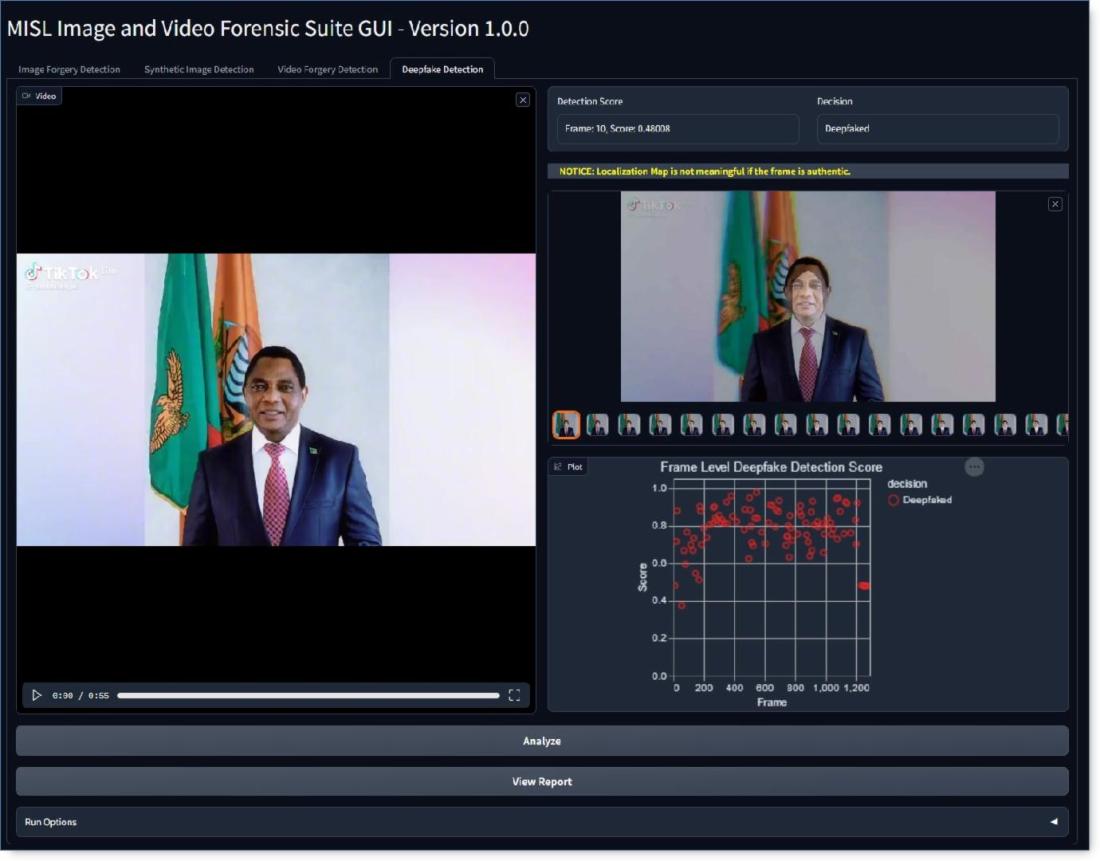
The odd movements on Hichilema’s face appear because “deepfake software often has a hard time mimicking realistic human movement”, Stamm said.
He believed that this video was made with “a simplistic system”, such as a consumer-friendly application because more advanced approaches to creating deepfakes currently exist.
Police investigation
Zambian police confirmed to AFP Fact Check on October 23, 2023 that they were looking into the video’s creator.
“We are investigating the origin of the video and who is exactly behind its publication. Currently, we are following leads,” said deputy spokesman Danny Mwale.
The ruling United Party for National Development (UPND) dismissed the video in a statement published on October 8, 2023, accusing opposition parties of creating it (archived here).
“We understand the desperation of the opposition political parties to an extent where they are now ready to commit criminality against the popularly elected head of state,” it read.
“These rogue elements are creating and circulating fake videos which mimic the president with electronically generated voice intended to mislead the public.”
The party warned of legal action and cautioned the public not to circulate the video that “is a clear misrepresentation of president Hichilema’s persona”.
Zambia introduced the Cyber Security and Cyber Crimes Act 2021, with a range of cyber-related crimes punishable by fines or jail time.
Presidential terms
As reported by AFP, Hichilema was elected president in 2021 on his sixth attempt for the top job and the third time he had challenged his predecessor Lungu, who then announced his retirement.
A president can serve two five-year terms according to Zambia’s Constitution, and Hichilema is still in his first (archived here).

Lungu was deemed eligible to run in August 2021, a judgement which contradicted the two-term limitation imposed by the 2016 Zambian constitution in Article 106(3) (archived here, here and here).
His eligibility to run in the 2026 elections is not yet clear although Lungu has unofficially hinted at the possibility (archived here and here).
AFP Fact Check has debunked a number of AI-generated videos, including one about footballer Lionel Messi and another related to the death of Nigerian Afrobeats star MohBad.
AFP Fact Check has created a guide with tips on how to identify AI-generated content, which you can read here.
Metadata updatedApril 26, 2024 Metadata updated
Copyright © AFP 2017-2026. Any commercial use of this content requires a subscription. Click here to find out more.
Is there content that you would like AFP to fact-check? Get in touch.
Contact us
